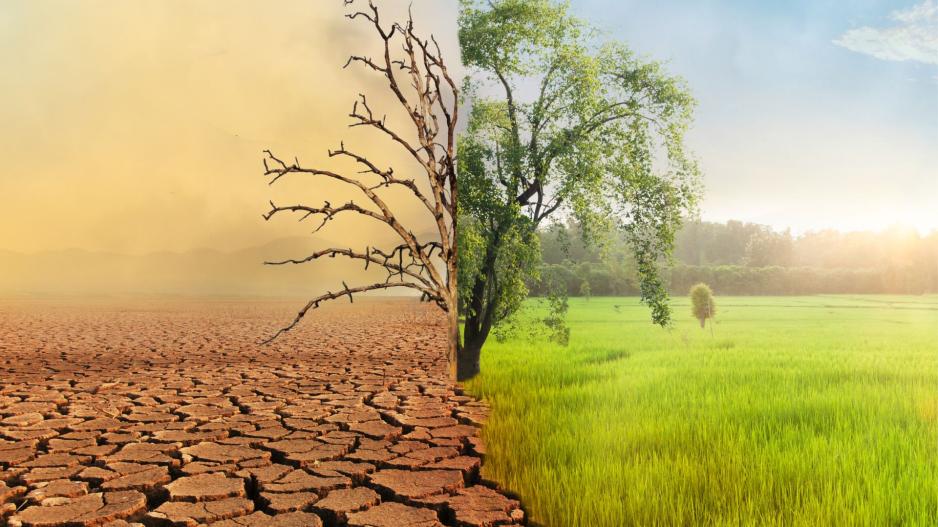Climate Crisis And The Devastating Economic Impact
GDP Estimated To Drop 15% By The End Of The Century
A 1-degree Celsius increase in global temperature leads to a 12% reduction in global GDP. The economic damage caused by climate change is six times worse than previously estimated, with global warming shrinking wealth at a rate comparable to the level of economic losses seen in a continuous permanent war, according to research.
A 1-degree Celsius increase in global temperature results in a 12% decrease in global Gross Domestic Product (GDP), researchers found, a much higher estimate than that of previous analyses.
Industry calls on the EU: "Change course with the green transition."
The world has already warmed by more than 1°C since the pre-industrial era, and many climate scientists predict a 3°C increase by the end of this century due to the continued burning of fossil fuels.
By the end of the century, people could well be 50% poorer than they would have been without climate change.
A 3-degree Celsius increase in temperature will cause "sharp declines in production, capital, and consumption exceeding 50% by 2100," according to the Guardian. This economic loss is so severe that "it is comparable to the economic damage caused by a permanent war," it adds.
"There will still be some economic growth, but by the end of the century, people could well be 50% poorer than they would have been without climate change," said Adrien Bilal, an economist at Harvard who wrote the paper with Diego Känzig, an economist at Northwestern University.
"I think anyone could imagine what they would do with an income that is twice what it is now. It would change people's lives."
Bilal said that purchasing power, meaning how much people can buy with their money, would already be 37% higher than it is now without the global warming observed over the past 50 years. The amount of lost wealth will increase dramatically if the climate crisis deepens.
"Let’s be clear that the comparison to war pertains only to consumption and GDP – all the suffering and deaths of war are the significant things and are not included in this analysis," Bilal said. "The comparison might seem shocking, but in terms of net GDP, there is a parallel there. It is a troubling thought."
The paper places a much higher estimate on economic losses than previous research, calculating the social cost of carbon, which is the dollar cost of the damage caused by each additional ton of carbon emissions, at $1,056 per ton. This compares to a range set by the US Environmental Protection Agency (EPA), which estimates the cost at about $190 per ton.
Bilal said that the new research takes a more "holistic" look at the economic cost of climate change by analyzing it on a global scale rather than country by country. This approach, he said, captured the interconnected nature of the impacts of heatwaves, storms, floods, and other worsening climate effects that harm crop yields, reduce worker productivity, and diminish capital investments.
The research found that the economic impact of the climate crisis will be surprisingly uniform across the world, although lower-income countries will start from a lower wealth baseline. This should prompt wealthy countries like the US, the research notes, to take action to reduce planet-warming emissions in their own economic interest.
Even with sharp emission cuts, however, climate change will have a heavy economic cost. Even if global warming were limited to just over 1.5°C by the end of the century—a globally agreed-upon target that now seems out of reach—GDP losses would still be around 15%.
"This is still significant," Bilal said. "The economy may continue to grow but less than it would have due to climate change. It will be a slow phenomenon, although the impacts will be felt when they hit."
The paper follows separate research released last month, which found that median incomes will decline by nearly one-fifth over the next 26 years compared to what they would have been without the climate crisis. Rising temperatures, heavy rainfall, and more frequent and intense extreme weather events are expected to wreak havoc costing $38 trillion annually by the middle of the century, according to the research.






